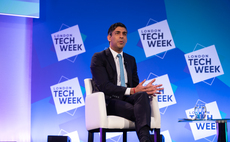Chancellor claims better use of IT and centralised procurement will save the country cash as he cuts Cabinet Office budget by 10 per cent
George Osborne hopes £800m will be saved between 2015 and 2016 by using digital technology and adopting new commercial models for service delivery, he announced today as part of his spending review...
To continue reading this article...
Join CRN
- Enjoy full access to channelweb.co.uk - the UK’s top news source for the IT channel
- Gain the latest insights through market analysis and interviews with channel leaders
- Stay on top of key trends with the Insider weekly newsletter curated by CRN’s editor
- Be the first to hear about our industry leading events and awards programmes
Already a CRN member?








